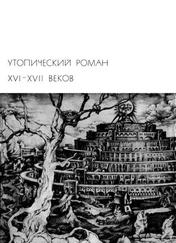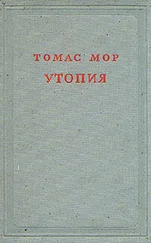"If this method does not succeed with them, then they sow seeds of contention among their enemies, and animate the prince's brother, or some of the nobility, to aspire to the crown. If they cannot disunite them by domestic broils, then they engage their neighbours against them, and make them set on foot some old pretensions, which are never wanting to princes when they have occasion for them. These they plentifully supply with money, though but very sparingly with any auxiliary troops; for they are so tender of their own people that they would not willingly exchange one of them, even with the prince of their enemies' country.
"But as they keep their gold and silver only for such an occasion, so, when that offers itself, they easily part with it; since it would be no convenience to them, though they should reserve nothing of it to themselves. For besides the wealth that they have among them at home, they have a vast treasure abroad; many nations round about them being deep in their debt: so that they hire soldiers from all places for carrying on their wars; but chiefly from the Zapolets, who live five hundred miles east of Utopia. They are a rude, wild, and fierce nation, who delight in the woods and rocks, among which they were born and bred up. They are hardened both against heat, cold, and labour, and know nothing of the delicacies of life. They do not apply themselves to agriculture, nor do they care either for their houses or their clothes: cattle is all that they look after; and for the greatest part they live either by hunting or upon rapine; and are made, as it were, only for war. They watch all opportunities of engaging in it, and very readily embrace such as are offered them. Great numbers of them will frequently go out, and offer themselves for a very low pay, to serve any that will employ them: they know none of the arts of life, but those that lead to the taking it away; they serve those that hire them, both with much courage and great fidelity; but will not engage to serve for any determined time, and agree upon such terms, that the next day they may go over to the enemies of those whom they serve if they offer them a greater encouragement; and will, perhaps, return to them the day after that upon a higher advance of their pay. There are few wars in which they make not a considerable part of the armies of both sides: so it often falls out that they who are related, and were hired in the same country, and so have lived long and familiarly together, forgetting both their relations and former friendship, kill one another upon no other consideration than that of being hired to it for a little money by princes of different interests; and such a regard have they for money that they are easily wrought on by the difference of one penny a day to change sides. So entirely does their avarice influence them; and yet this money, which they value so highly, is of little use to them; for what they purchase thus with their blood they quickly waste on luxury, which among them is but of a poor and miserable form.
"This nation serves the Utopians against all people whatsoever, for they pay higher than any other. The Utopians hold this for a maxim, that as they seek out the best sort of men for their own use at home, so they make use of this worst sort of men for the consumption of war; and therefore they hire them with the offers of vast rewards to expose themselves to all sorts of hazards, out of which the greater part never returns to claim their promises; yet they make them good most religiously to such as escape. This animates them to adventure again, whenever there is occasion for it; for the Utopians are not at all troubled how many of these happen to be killed, and reckon it a service done to mankind if they could be a means to deliver the world from such a lewd and vicious sort of people, that seem to have run together, as to the drain of human nature. Next to these, they are served in their wars with those upon whose account they undertake them, and with the auxiliary troops of their other friends, to whom they join a few of their own people, and send some man of eminent and approved virtue to command in chief. There are two sent with him, who, during his command, are but private men, but the first is to succeed him if he should happen to be either killed or taken; and, in case of the like misfortune to him, the third comes in his place; and thus they provide against all events, that such accidents as may befall their generals may not endanger their armies. When they draw out troops of their own people, they take such out of every city as freely offer themselves, for none are forced to go against their wills, since they think that if any man is pressed that wants courage, he will not only act faintly, but by his cowardice dishearten others. But if an invasion is made on their country, they make use of such men, if they have good bodies, though they are not brave; and either put them aboard their ships, or place them on the walls of their towns, that being so posted, they may find no opportunity of flying away; and thus either shame, the heat of action, or the impossibility of flying, bears down their cowardice; they often make a virtue of necessity, and behave themselves well, because nothing else is left them. But as they force no man to go into any foreign war against his will, so they do not hinder those women who are willing to go along with their husbands; on the contrary, they encourage and praise them, and they stand often next their husbands in the front of the army. They also place together those who are related, parents, and children, kindred, and those that are mutually allied, near one another; that those whom nature has inspired with the greatest zeal for assisting one another may be the nearest and readiest to do it; and it is matter of great reproach if husband or wife survive one another, or if a child survives his parent, and therefore when they come to be engaged in action, they continue to fight to the last man, if their enemies stand before them: and as they use all prudent methods to avoid the endangering their own men, and if it is possible let all the action and danger fall upon the troops that they hire, so if it becomes necessary for themselves to engage, they then charge with as much courage as they avoided it before with prudence: nor is it a fierce charge at first, but it increases by degrees; and as they continue in action, they grow more obstinate, and press harder upon the enemy, insomuch that they will much sooner die than give ground; for the certainty that their children will be well looked after when they are dead frees them from all that anxiety concerning them which often masters men of great courage; and thus they are animated by a noble and invincible resolution. Their skill in military affairs increases their courage: and the wise sentiments which, according to the laws of their country, are instilled into them in their education, give additional vigour to their minds: for as they do not undervalue life so as prodigally to throw it away, they are not so indecently fond of it as to preserve it by base and unbecoming methods. In the greatest heat of action the bravest of their youth, who have devoted themselves to that service, single out the general of their enemies, set on him either openly or by ambuscade; pursue him everywhere, and when spent and wearied out, are relieved by others, who never give over the pursuit, either attacking him with close weapons when they can get near him, or with those which wound at a distance, when others get in between them. So that, unless he secures himself by flight, they seldom fail at last to kill or to take him prisoner. When they have obtained a victory, they kill as few as possible, and are much more bent on taking many prisoners than on killing those that fly before them. Nor do they ever let their men so loose in the pursuit of their enemies as not to retain an entire body still in order; so that if they have been forced to engage the last of their battalions before they could gain the day, they will rather let their enemies all escape than pursue them when their own army is in disorder; remembering well what has often fallen out to themselves, that when the main body of their army has been quite defeated and broken, when their enemies, imagining the victory obtained, have let themselves loose into an irregular pursuit, a few of them that lay for a reserve, waiting a fit opportunity, have fallen on them in their chase, and when straggling in disorder, and apprehensive of no danger, but counting the day their own, have turned the whole action, and, wresting out of their hands a victory that seemed certain and undoubted, while the vanquished have suddenly become victorious.
Читать дальше
Конец ознакомительного отрывка
Купить книгу








